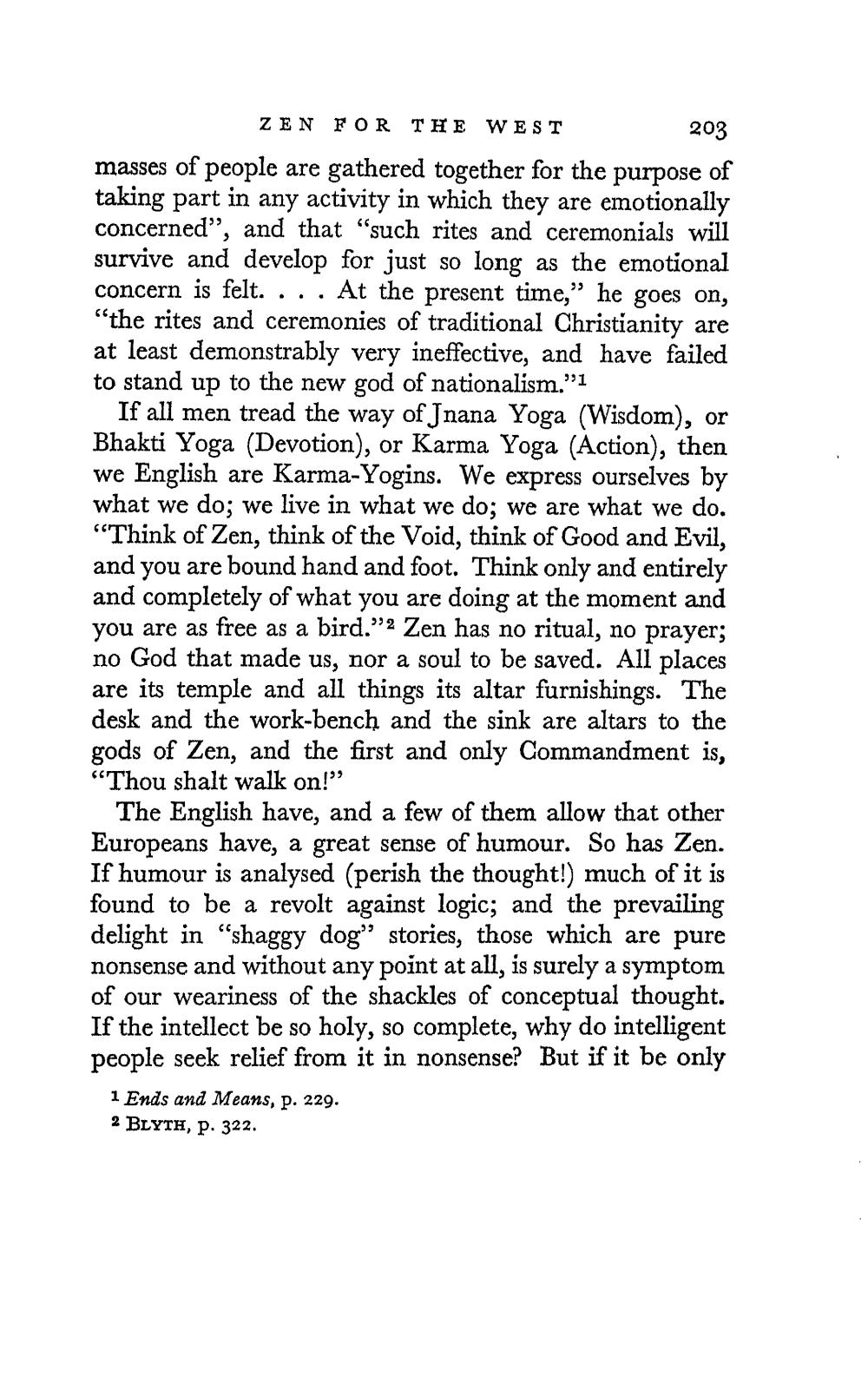________________
ZEN FOR THE WEST
203 masses of people are gathered together for the purpose of taking part in any activity in which they are emotionally concerned", and that "such rites and ceremonials will survive and develop for just so long as the emotional concern is felt. . . . At the present time," he goes on, “the rites and ceremonies of traditional Christianity are at least demonstrably very ineffective, and have failed to stand up to the new god of nationalism."1
If all men tread the way of Jnana Yoga (Wisdom), or Bhakti Yoga (Devotion), or Karma Yoga (Action), then we English are Karma-Yogins. We express ourselves by what we do; we live in what we do; we are what we do. “Think of Zen, think of the Void, think of Good and Evil, and you are bound hand and foot. Think only and entirely and completely of what you are doing at the moment and you are as free as a bird.”2 Zen has no ritual, no prayer; no God that made us, nor a soul to be saved. All places are its temple and all things its altar furnishings. The desk and the work-bench and the sink are altars to the gods of Zen, and the first and only Commandment is, “Thou shalt walk on!”
The English have, and a few of them allow that other Europeans have, a great sense of humour. So has Zen. If humour is analysed (perish the thought!) much of it is found to be a revolt against logic; and the prevailing delight in "shaggy dog” stories, those which are pure nonsense and without any point at all, is surely a symptom of our weariness of the shackles of conceptual thought. If the intellect be so holy, so complete, why do intelligent people seek relief from it in nonsense? But if it be only
1 Ends and Means, p. 229. 2 BLYTH, P. 322.




